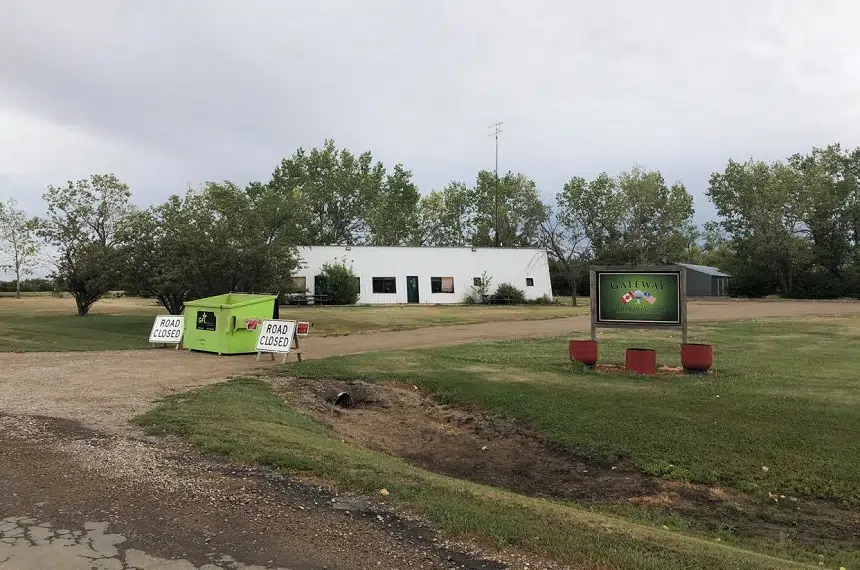Residents of a small community in southeastern Saskatchewan are dealing with some unusual circumstances amid the continued closure of the Canada-U.S. border.
The border separating Canada and the U.S. has been closed since March 21 due to COVID-19 restrictions.
That means it has been 209 days that the communities of North Portal, Sask., and Portal, N.D., have been separated.
Each community has fewer than 200 people but they’re located within one kilometre of each other, with the border sitting in between them.
Residents of the tight-knit communities have family on both sides, making the prolonged closure of the border feel like a lifetime.
“There are a few families split up. They have had to pull up to the fence line to check in on one another. At least they can see each other face to face but otherwise there has been very limited contact,” North Portal Mayor Kaylah Turner said.
“The biggest impact of the closed border has been the social impact. There is a lot of family members that live in North Portal and Portal that haven’t been able to spend time with one another.
“I have a friend whose daughter couldn’t come over for Thanksgiving supper even though they were only a kilometre away from each other. It’s very heartbreaking.”
Economically, North Portal has felt a hit. The usually busy North Portal Duty-Free shop has had very little traffic since March.
“The duty-free store has taken a huge financial hit. (Its operators) have definitely been hurt the worst,” Turner said.
There is also an international golf course that starts in Saskatchewan and ends in the U.S. It has been heavily impacted by the border closure.
The clubhouse, which is on the American side, has had to remain closed as the majority of the course is on the Canadian side.
Canadians were still able to golf, but there have been alterations made to the holes to ensure the golfers specifically stay on the Canadian side of the border.
Equipment and golf carts were moved away from the clubhouse, making it a unique golf experience for people in the area who are used to being able to visit the clubhouse and converse with their international friends.
“We had to set up barricades on the golf course because the Americans and Canadians were conversing at the clubhouse. We had to put an end to that, unfortunately,” Turner said. “We miss golfing with our American friends.
“The golf course is a non-profit organization so not being able to bring in any income through the clubhouse was tough this year. Hopefully it will be open for next summer.”
North Dakota has seen a surge of cases recently, eclipsing a record high amount of cases on Friday with 877 new cases. The state’s total number of active cases is 5,247.
That’s a serious contrast to the numbers in Saskatchewan, which had 271 active cases as of Thursday. It’s important to note that Saskatchewan’s population is also 1.2 million, compared to North Dakota’s roughly 800,000.
“It goes to show the difference in how every country, province or state is handling things,” Turner said. “Personally, I am excited for the border to reopen but I understand the need to be safe.”







